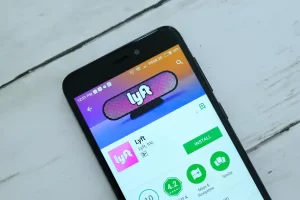In an Aug. 18 report for The Imprint, journalist Susanti Sarkar exposes a system known as hidden foster care. It’s a term many outside child welfare circles have never heard, but it affects thousands of families, including people like Megan Baxter-Scott of Buffalo, New York, who found herself suddenly caring for her step-grandson with no legal rights, no support, and no safety net.
In 2023, Baxter-Scott was a single mother working full-time and raising two teenagers when Child Protective Services (CPS) knocked on her door. Her 17-year-old stepdaughter had been hospitalized, and CPS needed someone to take in the girl’s 4-month-old baby. The offer came with a catch: this would be an informal arrangement with no court, no foster care designation, and no financial support.
Baxter-Scott said yes. She remembered what it felt like to be in foster care herself as a teen and didn’t want her grandson to endure that same sense of abandonment.
“I never, ever want anybody in this lifetime to experience what I went through,” she told The Imprint.
Sarkar uses Baxter-Scott’s story to illustrate how the child welfare system often operates in the shadows, sidestepping formal oversight through the use of what are called “safety plans.” These plans move children out of their homes during CPS investigations, without triggering formal court involvement. As a result, families like Baxter-Scott’s step into parental roles without legal authority, training, or financial help.
What the New York Bill Would Do
A bill passed unanimously by New York’s legislature earlier this year aims to bring more transparency to this “shadow system.” Sponsored by Senator Jabari Brisport and Assemblymember Andrew Hevesi, the legislation would require counties to track and report data on these informal placements, including how long children are separated from their parents and what ultimately happens to them.
“It’s time to bring hidden foster care arrangements out of the shadows,” Brisport said in a statement to The Imprint. “We must ensure every guardian has the support they need.”
The bill now awaits Governor Kathy Hochul’s signature.
Care Without Support
Because Baxter-Scott was never made a formal foster parent, she receives no monthly stipend from the state. While licensed foster parents in New York are eligible for about $1,000 a month for children under 5, informal caregivers like Baxter-Scott are expected to shoulder the full cost on their own.
“I just have to deal with it,” she said.
To make ends meet, she’s cut spending for her older children, shares a bedroom with her grandson, and relies on family to fill in the gaps. A modest $400 grant helps, but it’s far from what a licensed caregiver would receive.
Still, Baxter-Scott continues to fight for permanent custody, not because she has to, but because she believes it’s the right thing to do.
The National Debate Over Hidden Foster Care
Sarkar’s reporting echoes growing concern about the informal practices used by child welfare systems across the country. The term “hidden foster care” entered the spotlight after a 2020 article (PDF) by Columbia law professor Josh Gupta-Kagan estimated more than 250,000 children were placed informally each year. These arrangements, while keeping children with relatives, often leave families without legal protections or resources.
Critics say these arrangements deny families due process. Unlike formal foster care, there is no court hearing, no legal requirement for evidence of maltreatment, and no timeline for reunification. Safety plans are technically voluntary, however, families often feel pressured to comply.
“In the name of keeping children with family, the state has been given a free hand to separate children from their parents,” said attorney Diane Redleaf, “with no clear support for eventual reunification.”
Children placed informally also miss out on vital services like health care and therapy. And unlike licensed foster families, informal caregivers are not entitled to legal counsel, even if they are low-income.
When Foster Care Is Official, Help Arrives
In contrast to Baxter-Scott, Plattsburgh resident Angelle Pascoe went through the formal foster care system. She took in her granddaughter after the child was born dependent on heroin. Initially, it was an informal placement. But once CPS filed a formal complaint against the infant’s mother, Pascoe became a licensed foster parent.
That change brought a monthly stipend, access to social workers, support groups, and someone to call when questions or legal issues came up. “You have somebody to call and say, ‘Is this what’s really supposed to be going on?’” Pascoe said.
Pascoe knows many families still struggling in the shadows. In her mobile home park, she says two neighbors are raising grandchildren under similar safety plans, but with no state support.
States Taking Action
Sarkar’s article for The Imprint mentions that a few states are taking steps to limit hidden foster care. Texas passed a law in 2023 that restricts informal placements to 30 days—extendable to 90—with strict requirements for court involvement and parental rights. As a result, Texas reduced the number of children in these arrangements from 12,000 in 2021 to just 2,440 in 2025.
Nationally, efforts have stalled. A bipartisan bill in Congress—the Foster Care Placement Transparency Act—would have required every state to report informal placements annually. But it failed to make it to a vote.
For Baxter-Scott, the bill in New York could be a turning point. She told The Imprint’s Sarkar, “The bill is very important because it’ll bring light to what’s really happening underneath the surface,” she said. “There are resources that should be available for those kids, just like it is for the other kids.”
f you or someone you love has been pulled into the child welfare system through informal arrangements, safety plans, or hidden custody transfers, your experience may be part of a larger pattern. Survivors of institutional abuse often face these challenges quietly, without access to resources or justice.
Learn your rights and explore your legal options here.
Speed up the free case review process by filling out the form, below.




